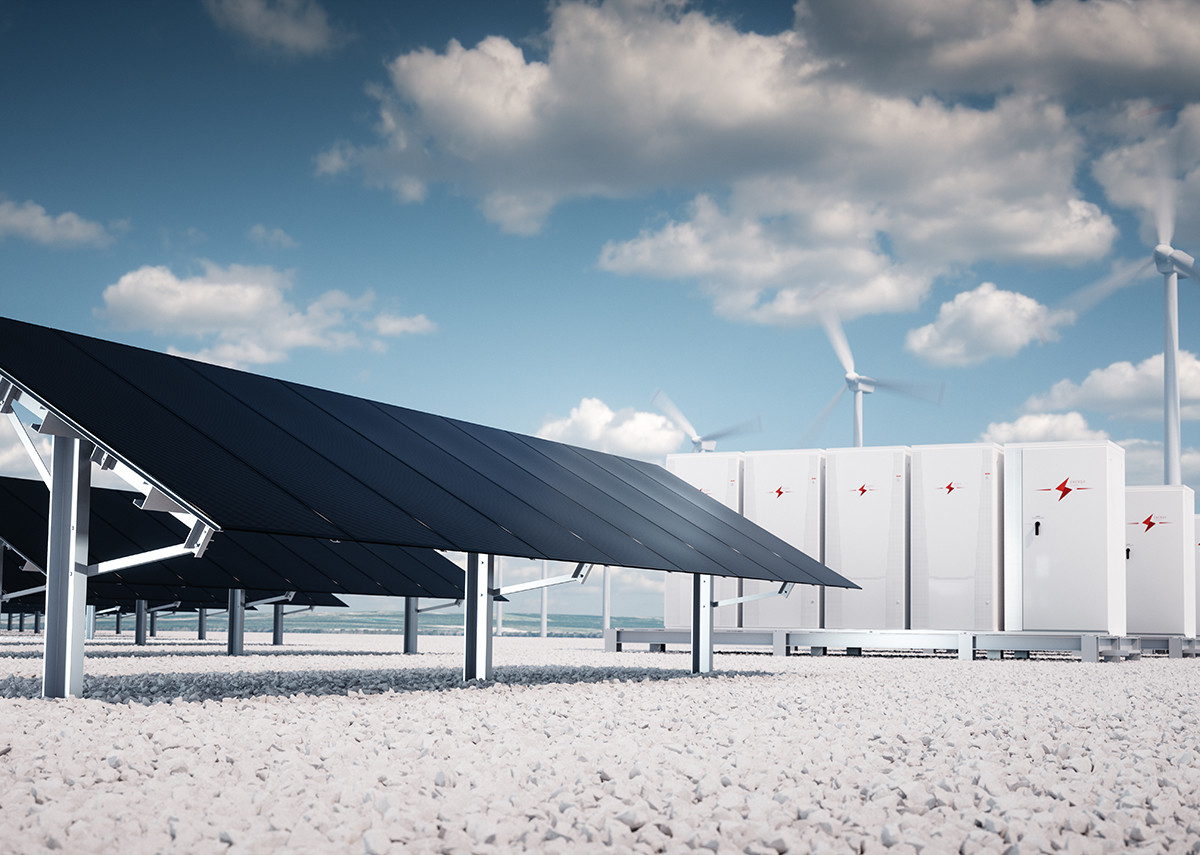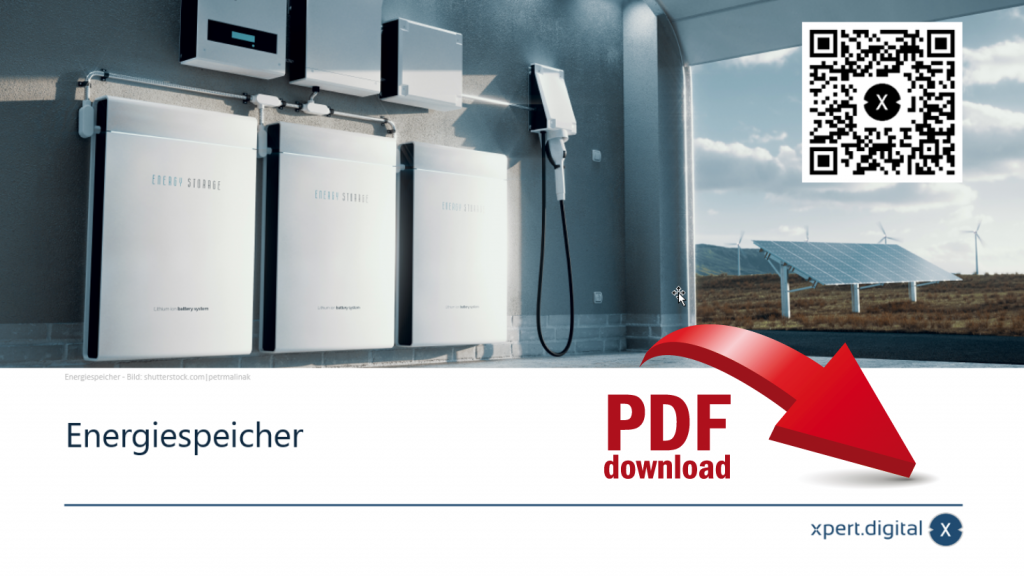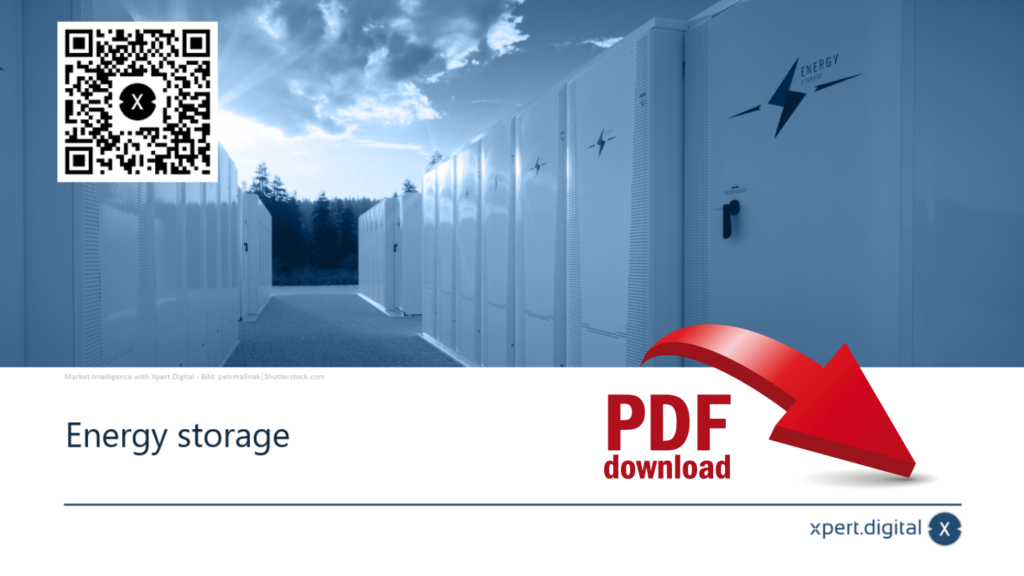Energy storage
Language selection 📢
Published on: October 29, 2020 / update from: August 21, 2024 - Author: Konrad Wolfenstein
You can find interesting figures, data and facts at the end of this article as a PDF download.
Energy storage is used to store energy that is currently available but not needed for later use. This storage is often accompanied by a conversion of the form of energy, for example from electrical to chemical energy (accumulator) or from electrical to potential energy (pump storage power plant). If necessary, the energy is then converted back into the desired form.
There are many different forms of energy storage that allow us to better manage our energy supply and reduce costs for both utilities and consumers.
Storage technologies are divided into six main categories:
- Solid state batteries
- Flow batteries
- flywheels
- Compressed air storage
- thermal hydropower
- pumped hydropower
In the United States, electrochemical projects are among the most common, and their markets and applications continue to grow.
The technical components of battery storage can vary widely, either in providing greater power capacity (maximum instantaneous power output of the battery) or greater energy capacity (total amount of electricity that can be stored or discharged). Performance-oriented systems are designed to produce large amounts of instantaneous power, but can also maintain that power over a long period of time. Energy-oriented systems are intended for longer periods of time and are used, for example, in cases where power is delivered during times of highest electricity demand.
Energy storage can play an important role in maintaining the balance between electricity supply and demand, creating greater flexibility in the electricity grid. When supply is greater than demand, excess electricity can be injected into energy storage, and when demand is high, these technologies can be used to inject more energy into the grid. Storage technologies can also improve the quality of electricity by allowing companies to provide energy when it is cheapest and most efficient, while maintaining a constant source of energy for critical infrastructure and services. Many renewable energy technologies have more variable output and energy storage has the potential to help maintain a more stable power supply. Despite its advantages, the energy storage market is still relatively small, so the cost of energy storage may need to fall significantly for the market to become profitable.
Energy storage
Important note: The PDF is password protected.
Please get in contact with me. Of course, the PDF is free of charge. Important note: The PDF is password protected. Please contact me. Of course the PDF is free of charge.
German version – To see the PDF, please click on the image below.
Gemran Version – To view the PDF, please click on the image below.
Energy storage – Energy Storage
Important note: The PDF is password protected.
Please get in contact with me. Of course, the PDF is free of charge. Important note: The PDF is password protected. Please contact me. Of course the PDF is free of charge.
English version – To view the PDF, please click on the image below.
English Version – To view the PDF, please click on the image below.
























